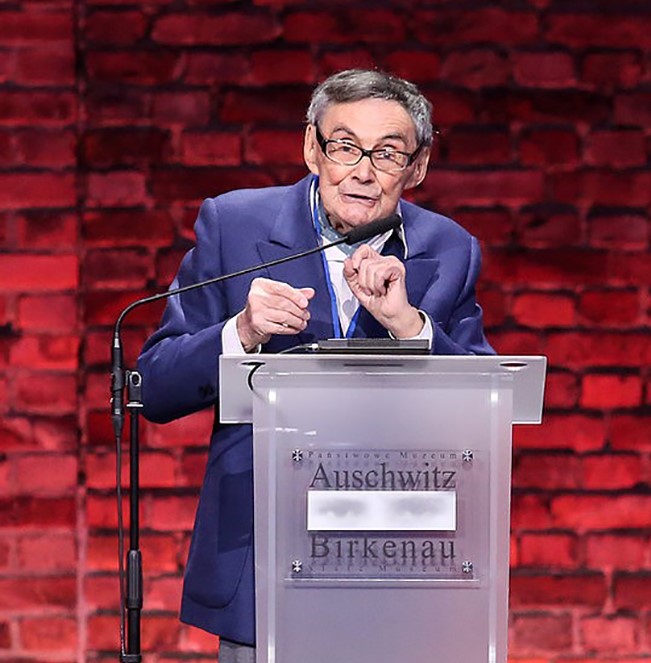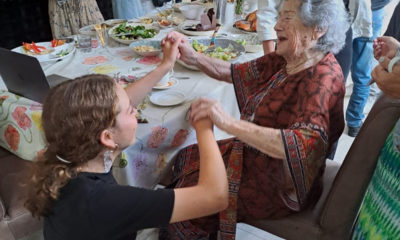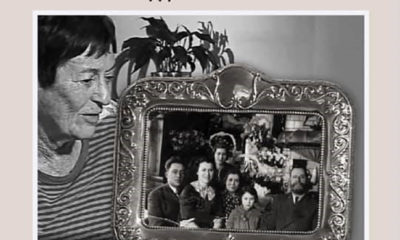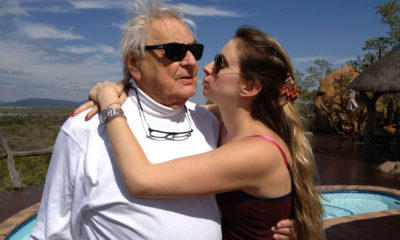
Featured Item

Polish Jews drive inaugural celebration of Holocaust survivors
An inaugural day to honour the lives and legacy of Holocaust survivors has been launched by the Jewish Community Centre (JCC) in Krakow, Poland, in collaboration with a range of other Jewish and Holocaust organisations.
“The lives of Holocaust survivors convey a universal message of the strength and the resilience of the human spirit; that people can go through something traumatic and then afterwards still be able to love, to appreciate beauty and to feel empathy after what they went through,” said Jonathan Ornstein, the executive director of the Krakow JCC, in explaining the rationale behind the day to be held for the first time on 26 June this year.
Ornstein launched the idea early last month, along with Professor Michael Berenbaum, the director of the Sigi Ziering Institute at the American Jewish University.
He said the idea had been “percolating” since the 75th anniversary of the liberation of Auschwitz-Birkenau in January 2020, which about 200 survivors attended. “It really got us thinking about the survivors and their effect on us. In the twilight of their lives, they deserve to be honoured.”
It also became clear during the coronavirus pandemic that communal assistance was needed by many survivors. An international Holocaust Survivor Day would hopefully assist in bringing awareness and practical support.
It’s believed there are about 400 000 survivors worldwide, of which it’s estimated that a quarter of them could be living in poverty.
“It’s a day of hope, optimism, story-telling, and education. It’s a day, most of all, for them to feel appreciated, and for them to understand how grateful we are for how much they have given and continue to give us.”
Each community should decide how best they want to commemorate the day, said Ornstein, but the hope was that it would involve interaction across generations, listening to survivors’ stories, and, if needed, fundraising for the well-being of survivors in that country.
The day is proposed as an addition to Yom Hashoah and the International Day of Commemoration in Memory of the Victims of the Holocaust, which are held on 27 Nisan in the Jewish calendar, and 27 January respectively.
Having a separate day to these would allow us to focus on the stories of the survivors, which many have so movingly offered to share with the world in spite of their pain.
“Their lives encapsulate the spirit of the Jewish people – this idea that we as a people have gone through such difficult times and experienced antisemitism over thousands of years, and yet we continue to lead Jewish lives, we continue to be involved. We don’t give up as Jews or as human beings. That’s the story of our people,” Ornstein said.
He said there had been a fantastic response to the idea. An international advisory committee steering the day now includes representatives from Holocaust-survivor organisations in Israel, the United States and Europe, as well as the USC Shoah Foundation, the Auschwitz-Birkenau Memorial Foundation, the POLIN Museum of the History of Polish Jews, the General Compensation Fund for Victims of National Socialism, the Claims Conference, the World Jewish Congress, March of the Living, the Ronald S. Lauder Foundation, and various others.
The date selected for the commemoration is the birthdate of Marian Turski, a Polish survivor of Auschwitz, and a historian and journalist, who will turn 95 on the day.
“He’s such a moral figure who has lived his life with exemplary Jewish values, and he’s just a warm, wonderful human being,” reflected Ornstein.
Most recently, Turski spoke at last year’s anniversary of the liberation of Auschwitz-Birkenau, discussing the idea of an eleventh commandment to the world: never be a bystander.
“Do not be indifferent,” he said at the time. “Do not be indifferent when you see historical lies; do not be indifferent when any minority is discriminated against; do not be indifferent when power violates a social contract.”
Tali Nates, the director of the Johannesburg Holocaust & Genocide Centre, said it was a good idea to celebrate the resilience and lives of survivors.
In South Africa, there are about 30 survivors left. These are defined as people whose lives were affected by the Nazi regime between 1933 and 1945, and include refugees.










